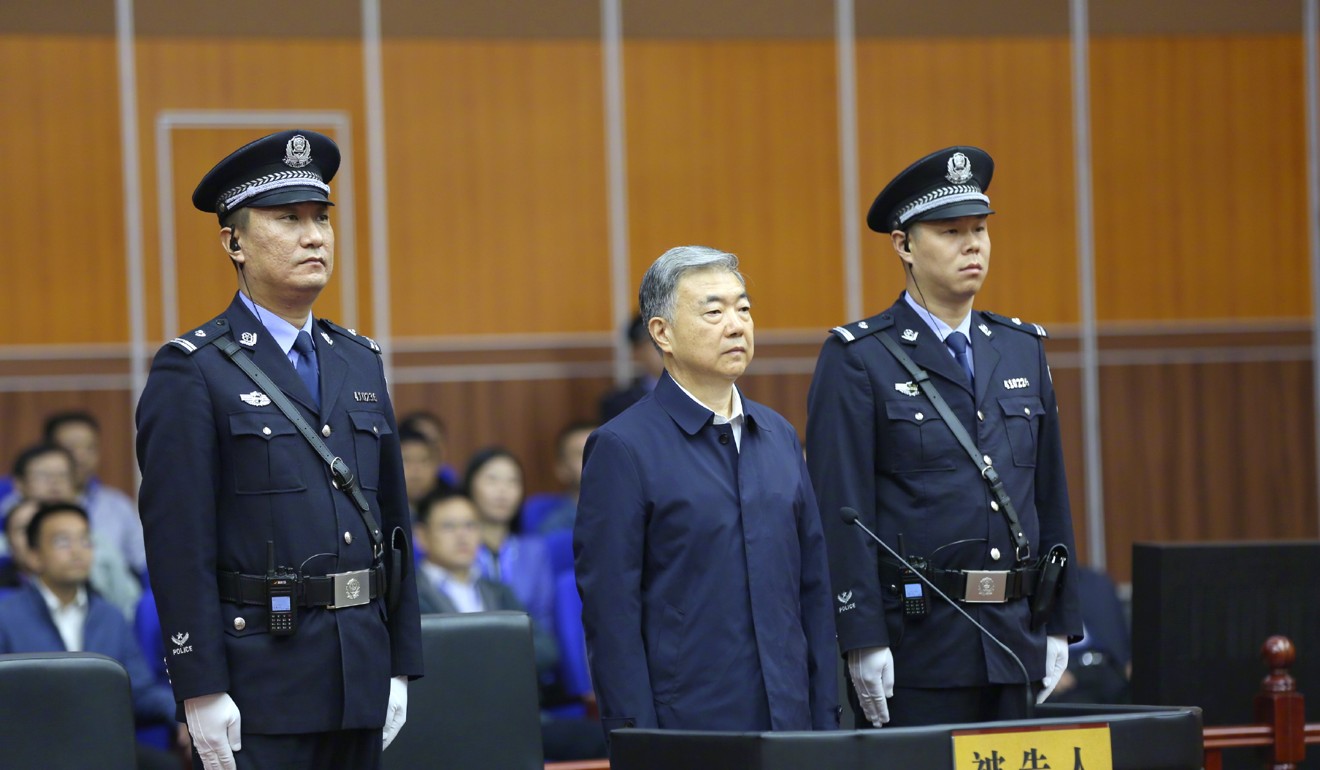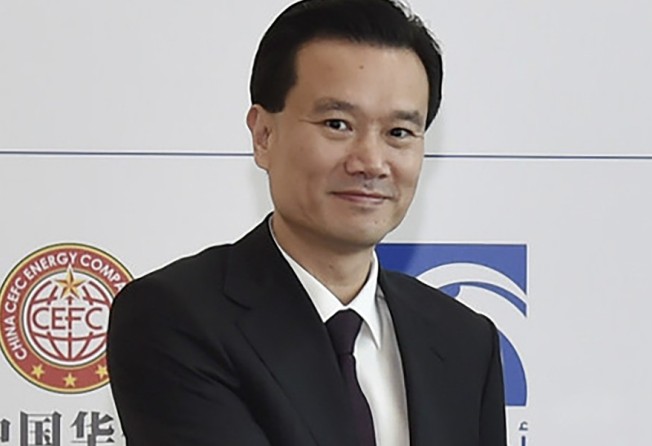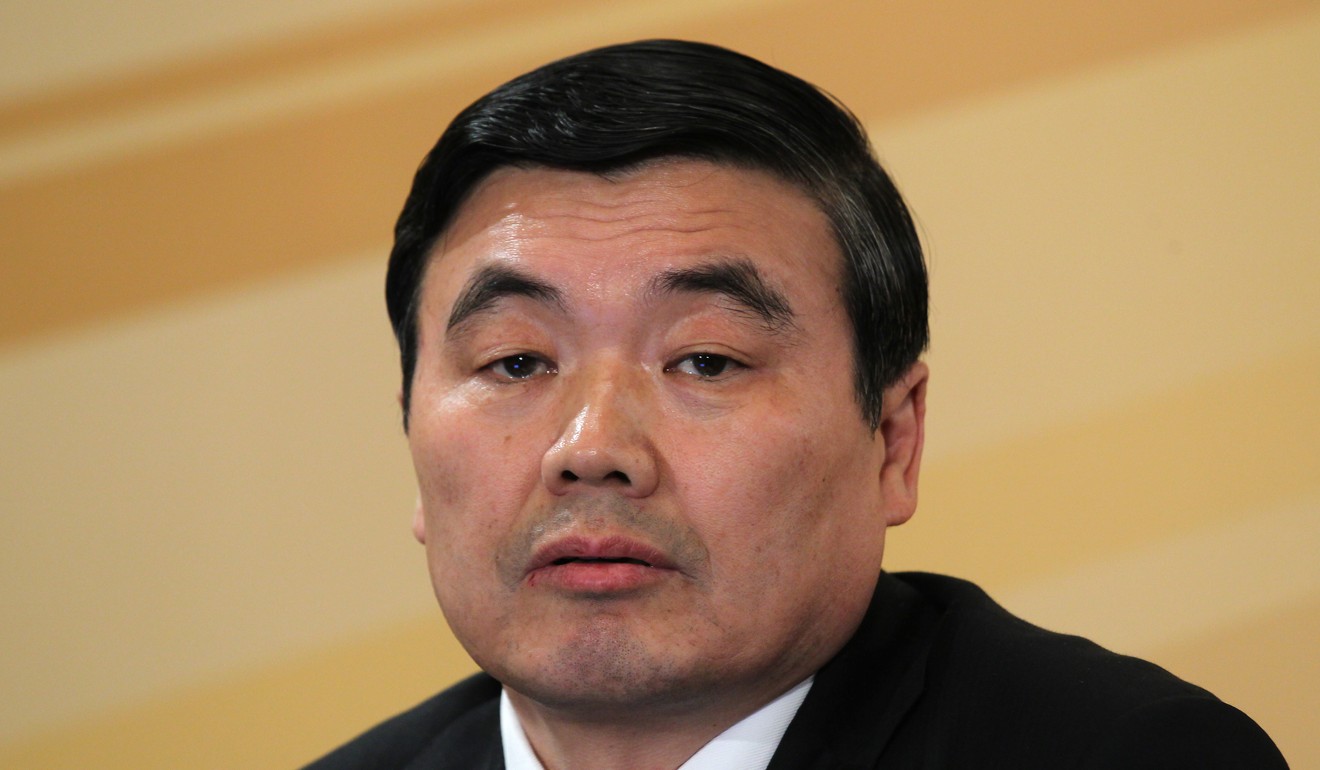
Vanished Chinese oil tycoon linked to senior official’s bribery case
State television report into trial of former Gansu party chief Wang Sunyun discloses that he was accused of taking bribes from Ye Jianming, the former head of CEFC China, who disappeared earlier this year

Ye Jianming, the former boss of CEFC China Energy who vanished from public sight in March, has been linked to a bribery case involving a toppled senior official, according to court documents aired on state television on Thursday night.
Wang Sanyun, the former Communist Party secretary in Gansu province, went on trial in a court in Zhengzhou in Henan province on Thursday.
A television news report on the trial broadcast a picture of court documents which said Wang had been charged with taking bribes from Ye.

The court heard that Wang had helped CEFC Shanghai, a subsidiary of CEFC China, to buy equity stakes in the Bank of Hainan via Hu Huaibang, the former chairman of China Development Bank.
Wang also helped CEFC Hainan, another subsidiary, to obtain a US$4.8 billion credit line through Hu, who retired from the China Development Bank last month.
The report said Wang had pleaded guilty to taking a total of 66.8 million yuan (US$9.7 million) in bribes. There was no word on any sentence.
It was the first time that state media had reported details of the allegations against Ye since he disappeared earlier this year.
CEFC rose spectacularly from obscurity to become China’s fourth-largest oil conglomerate in the space of a few years.
Its rise was helped by China Development Bank, a state lender, which pledged billions of dollars to the private firm to finance its aggressive expansion and headline-grabbing acquisition deals, including a failed attempt to buy a 14 per cent stake in Russian oil giant Rosneft.
Hu is a veteran Chinese financial regulator and a state banker.
According to his official biography, he had worked as the discipline chief at the former China Banking Regulatory Commission and a supervision director at China Investment Corporation, the country’s sovereign wealth fund.
Hu became the chairman of the Bank of Communications, China’s fifth largest lender, in 2008.
In 2013, he became the chairman of China Development Bank, before retiring in September.
There has been no official announcement on whether there will be an investigation into Hu’s role in the affair.

The South China Morning Post reported in March that Ye, who in the space of five years rose from obscurity to become head of China’s fourth-largest oil conglomerate, had been detained for questioning.
No Chinese authority has released any information about him since then, and he has not been formally charged with any wrongdoing.
The only piece of information about Ye came from the Czech presidential office.
Ye had been an adviser to President Milos Zeman and a delegation from Prague was told Ye was being investigated by the Chinese authorities on suspicion of “violation of laws” after it was sent to Shanghai to find out his whereabouts.
Meanwhile, Ye’s business empire is crumbling with an army of creditors demanding it repay its debts.
Its overseas assets are gradually being taken over by other investors. For instance, China’s state-owned giant Citic has taken full control of CEFC China Energy’s Czech assets.
The South China Morning Post reported last month that the oil trading arm of Chinese arms dealer Norinco and a private enterprise in Jiangsu were bidding for CEFC’s assets in Abu Dhabi.